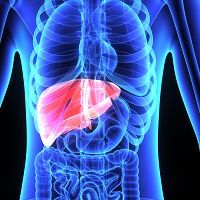Corticosteroids Superior to Pentoxifylline for Alcoholic Hepatitis
Management of alcoholic hepatitis consists of a multidisciplinary approach including alcohol cessation, fluid and electrolyte correction, treatment of alcohol withdrawal, and pharmacological therapy based on the severity of the disease.

A review in the World Journal of Gastroenterology suggests that corticosteroids remain preferable to pentoxifylline for treatment of alcoholic hepatitis (AH).
Management of AH consists of a multidisciplinary approach including alcohol cessation, fluid and electrolyte correction, treatment of alcohol withdrawal, and pharmacological therapy based on the severity of the disease. The finding is potentially important because corticosteroid use, while better studied and generally considered first-line pharmacological treatment, comes with higher risks of complications than does pentoxifylline. Treatment for AH sufferers is dicey to begin with, with 25%-35% of patients potentially facing morbidity and mortality in the setting of chronic alcohol abuse. The review also looked at considerations around abstinence therapy, transplantation, and nutritional techniques.
Corticosteroids treat AH by suppressing the cytokine cycle that predisposes the propagation of liver disease through chronic inflammation. According to the reviewers, “Corticosteroids have been shown to suppress cytokine production, interfere with adduct formation, and inhibit collagen production, thereby reducing hepatocellular injury. Corticosteroid therapy, primarily prednisolone, is one of the therapies recommended by the American Association for the Study of Liver Disease and the European Association for the Study of the Liver.
Regarding treatment, prednisolone is typically preferred over prednisone as prednisone requires hepatic conversion to the active form prednisolone. This conversion process may be impaired in patients with alcoholic hepatitis.”
Clinical studies of corticosteroids over placebo have been mixed. A 2008 Cochrane meta-analysis was performed on 15 randomized trials that compared glucocorticoid therapy with placebo, which revealed a trend towards mortality benefit that did not reach statistical significance. However subgroup analyses involving severe alcoholic hepatitis revealed that there was a reduction in 28-d mortality compared to those treated with placebo (20% vs 34%).
Yet, even when AH has been clinically confirmed, “There is still a high mortality in patients receiving steroids,” the authors note. “The balance between maximizing the benefits and minimizing the risks associated with corticosteroid use depends on accurate diagnosis and effective patient selection for treatment. Patients with active infections or other comorbidities may have to be managed conservatively as many of these patients were excluded from the studies.”
Pentoxifylline has been considered an alternative treatment, but the evidence supporting its use is much weaker. The authors note that corticosteroids should still be considered over pentoxifylline for the initial course of treatment for severe AH.
Studies that looked at anabolic steroids, propylthiouracil, colchicine, insulin and glucagon, phosphatidylcholine, infliximab and etanercept showed no strong, conclusive results.